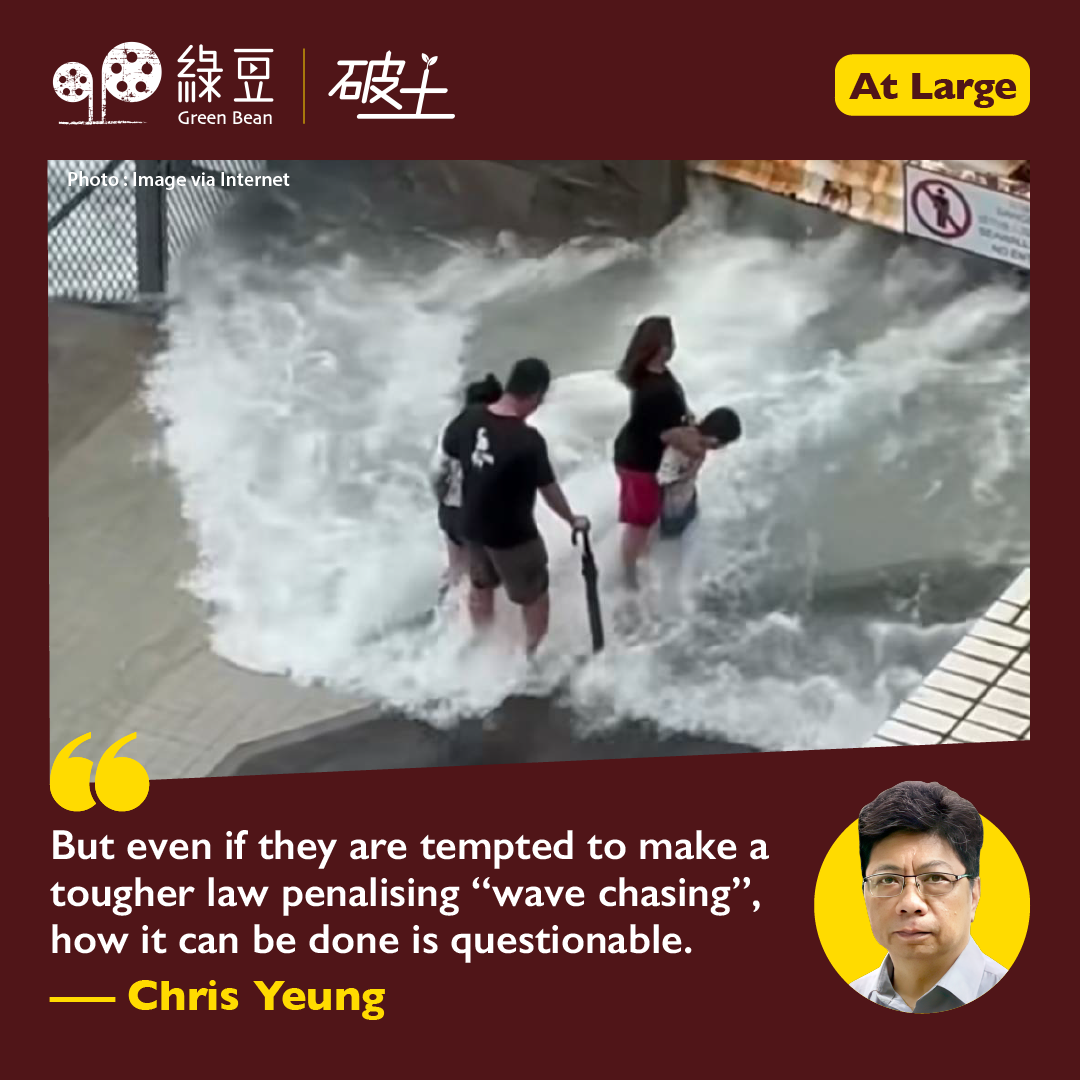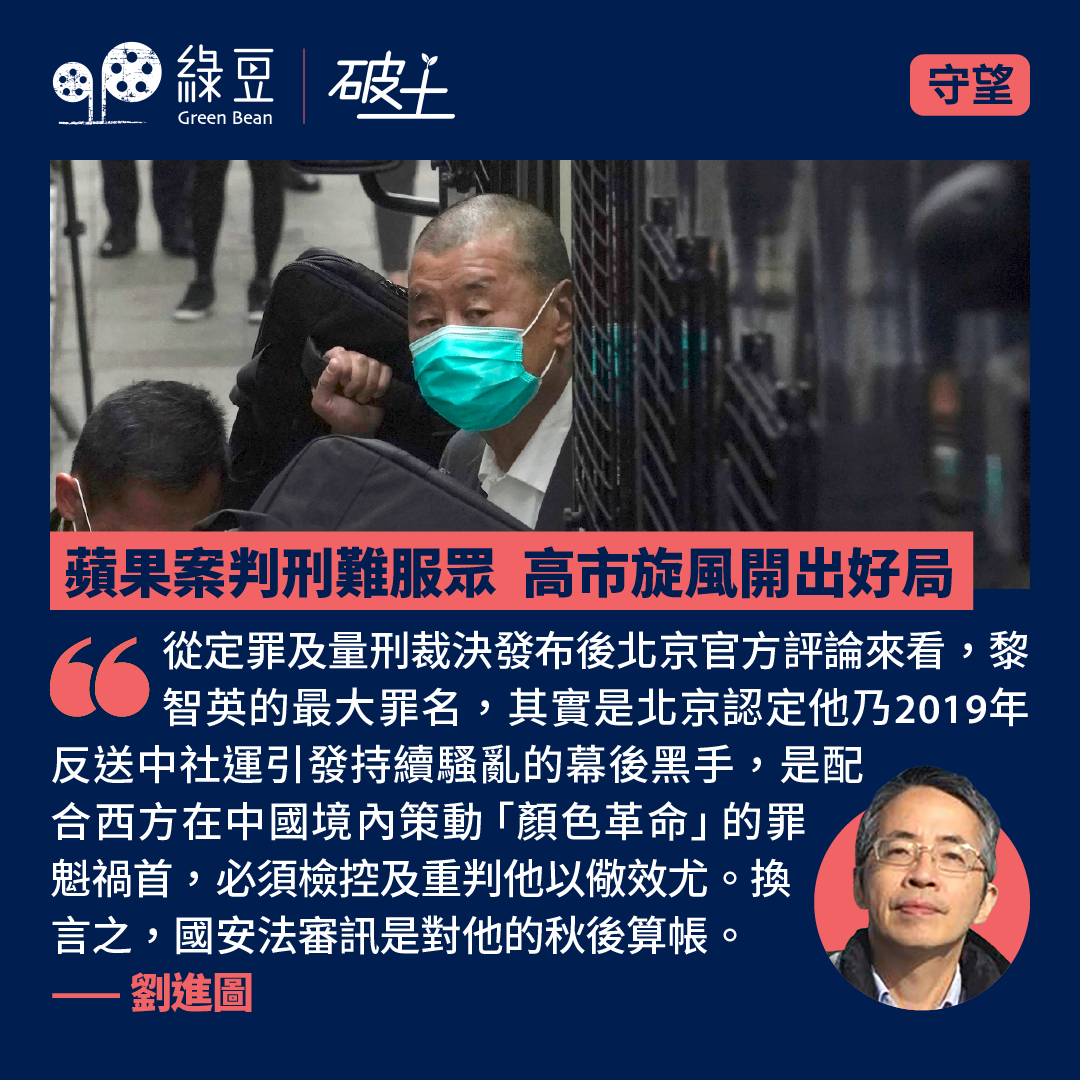Arrests of storm chasers a sign of sea change

Hong Kong has been known as a liberal society with rule of law. People are free to do and say whatever they want to within the law. Self-regulation is preferred. Being considerate of oneself and others is deeply rooted in society. Only when self-regulation is proved to be a failure the government steps in either by making laws or exercising administrative powers to right the wrong.
Those days seem to be fading into history. A tendency of rule by law is increasingly imminent. Last week’s swift arrests of five people on suspicion of breaking the laws during Super Typhoon Ragasa are yet another case in point.
The arrests
On Thursday – one day after Ragasa ramped through Hong Kong, Police arrested two women for allegedly taking an eight-year-old boy to a waterfront at a residential estate in Ap Lei Chau in Southern District. Two more people were apprehended on suspicion of taking youngsters to watch the waves in Kennedy Town in Western District on Friday. They face charges of child neglect.
Also on Friday, a 54-year-old man was prosecuted for allegedly swimming at a closed public beach when a No 10 signal was in effect.
The arrests and prosecution, rare of their kind, came in the midst of heated discussion on the thrilling scenes of dozens of residents ignoring government warnings and gathering to wave the waves during the onslaught of Ragasa.
Speaking at a radio programme on Thursday, Secretary for Security Chris Tang Ping-keung warned taking children to such dangerous activities could constitute neglect under the law.
He said there is no existing law unlawing “chasing wind and waves” but vowed to review existing legislation addressing storm chasing and consider enacting new laws.
Tang could not wait. Then came the two arrests and one prosecution.
Coming hot on the heels of the fall of a couple and their five-year-old boy into the sea outside a waterfront in Chai Wan on Tuesday afternoon, public response to the arrests and prosecution seem to be largely positive.
Storm chasers
The mother and her son were in critical condition after they were rescued from the stormy sea. The conditions of both have returned to stable and serious respectively as of Saturday. The parents were widely criticised on social media for taking their son and daughter out when the Typhoon Number 8 signal was hoisted.
In Hong Kong, it was not uncommon for some people to brave storms and heavy downpours to see for themselves the power of Nature during a typhoon.
With no existing laws banning people to “chase storms” except for government-managed beaches, it is arguably the choice and judgement of individuals on whether they should get close and how close they should be to the waterfronts when the city is hit by typhoons.
Judging from public reaction to those cases, most people would probably feel OK if people come out watching the waves and feeling the gales from a distance with no clear danger. The majority of people seem to be strongly against acts of parents taking children out during a typhoon.
This is despite the fact that the government, in particular law-enforcement departments including Police and the Fire Services, have made repeated appeals for people to stay away from beaches and waterfront areas during a typhoon.
Should be the last resort
On Monday, Chief Secretary Eric Chan Kwok-ki urged people not to “chase storms”, stressing that the Police will enforce the law strictly. He had not specified what laws would be applied. It has not been made abundantly clear that parents taking children aged under 16 out during a typhoon could be liable to the child neglect crime.
With hindsight, the patience and tolerance of the Lee team have worn thin. The Chai Wan case on Tuesday has given justifications to the government for it to get tough on serious cases of “storm chasing” by invoking the law on child neglect before new legislation is in place – if there is one.
It is unclear how the two cases of alleged child neglect will be ruled by judges assuming they will be taken to courts sooner or later. Regardless of the subsequent rulings, they have already created a strong deterrent effect.
Whether the Lee team finds the law on child neglect is effective enough to deter “storm chasers” is unclear.
But even if they are tempted to make a tougher law penalising “wave chasing”, how it can be done is questionable, not to mention the unintended consequences of over-legislation, which may create more problems than solutions and instill more unease in the society.
Now that some “wave chasers” may have to pay a price, their cases will give a clearer, no-nonsense warning to people not to do so or exercise self-regulation and self-restraint, to say the least, if they decide to go out during a typhoon.
Making a new law should only be the last resort if self-regulation and existing laws and regulations have proved to fail in deterring people from making dangerous acts at a time when strong typhoons are causing havoc in the city.
Cool heads should prevail when it comes to matters of a fine balance between individual choices and public safety in dealing with “storm chasing”.
▌ [At Large] About the Author
Chris Yeung is a veteran journalist, a founder and chief writer of the now-disbanded CitizenNews; he now runs a daily news commentary channel on Youtube. He had formerly worked with the South China Morning Post and the Hong Kong Economic Journal.





